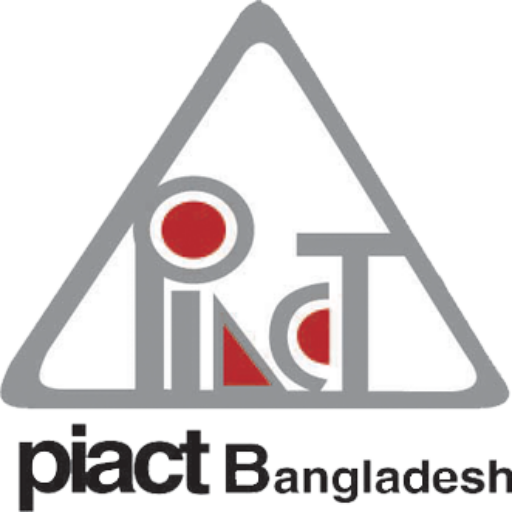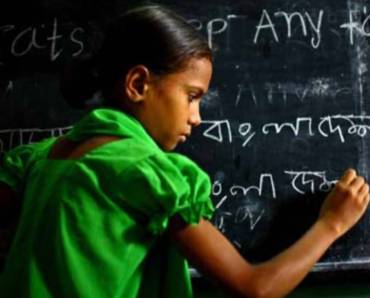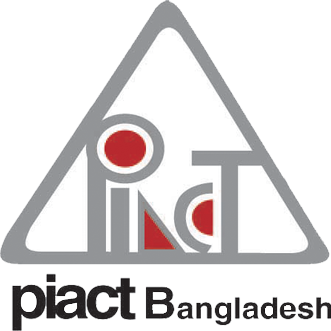Out of School Children and Non-literate Adults
Right to literacy is a human right and is essential for human resources development. To fulfill the commitment for Education for All (EFA) , complimentary to formal education, the government formulated Non-formal Education Policy for out of school children and illiterate adults. NGOs were envisaged to play a key role in undertaking non-formal education programs. Large NGOs, namely BRAC also came forward to complement the government in non-formal education (NFE). In all such programs, emphasis was given to the female education making it mandatory to include 60% girls in child as well as adult education. Among other NGOs, PIACT Bangladesh implemented NFE programs as partners of the government as well as BRAC. A short description of non-formal education programs undertaken by PIACT Bangladesh during a period of 20 years (1992 to 2012) are provided here.
However, PIACT Bangladesh has been continuing the non-formal education program with the children of sex workers of Daulatdia brothel as well as with the children in a remote Char area under Goalondo Upazilla.
Non-formal Education Programs for Out of School Children Implemented by
PIACT Bangladesh during the period from 1992 to 2012

PIACT Bangladesh began NFE program in 1992 for children of age 8-10 years in a rural upazila with support from BRAC. These children were those who did not have opportunity to study in the formal schools because of poverty. The program was implemented by organizing learning centers at the community level with 30 learners in each center. The course duration was for 3 years. A total of 900 learners were graduated from the PIACT centers in the period of 1992 to 2003.
More than 60% of them got admitted in grade IV and V in the formal primary schools.
During 1994 to 1996, PIACT Bangladesh implemented NFE program for children with support from then Integrating Non-formal Education Program (INFEP)/UNICEF in a rural area. The target beneficiaries were of age 6-10 years. A total of 1500 children completed a course for 2 years. They were eligible to get admission in grade II of the formal primary school.
Another program was implemented for the adolescents of age 11-14 years for duration of 24 months supported by INFEP/UNICEF. A total of 900 children (600 females and 300 males) completed the course.
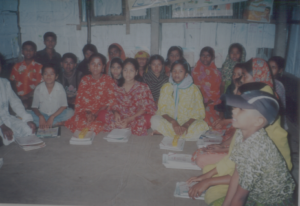
Directorate of Non-formal Education (DNFE, now BNFE)/ UNICEF designed a special program for urban working children. During 1997 to 2003, PIACT implemented Basic Education for Hard to Reach Urban Working Children (BEHTRUWC) of age 8-14 years with support from then DNFE. A total of 7,650 children received basic education for two years through learning centers set up for them in slum areas in the divisional cities.
Over 60% of the children later got admitted in grade III of the formal primary schools. Among them, 51 students received scholarship from Shishu Kallayan Trust to continue their study up to primary level.
The Bureau of Non-formal Education (BNFE) gave a new dimension for the BEHTRUWC program making the duration of the course for 40 months and linked it with need-based skill development training. PIACT Bangladesh as a partner of BNFE began to implement this program in 2006 and continued up to 2011.
A total of 7,850 students completed this course from PIACT learning centers and about 30% of these learners got admitted in grade IV and V of formal primary schools. A total of 780 learners graduated from PIACT learning centers were selected to avail skill development training arranged by DNFE.
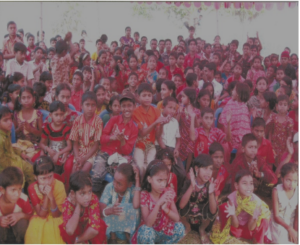
A gathering of the children graduated from
PIACT learning centers
Expression of Students about the Benefits of Education
Expression of
Md. Osman Gazi who had a dream

Before joining BEHTRUWC project, Osman Gazi, aged 14, did not have any idea about school or benefits of education. His village home was Chandpur and his father, Md. Shajahan Gazi was a mason and mother Mrs. Rahima Begum was a housewife. Osman was the 5th child of his parents among six sons and one daughter. His two working elder brothers left their family, which made miserable condition to support the family needs. His father was forced to sell their all homelands and they became landless. Osman started to work for earning as a vegetable seller in Maleckerbari Bazar, Gazipur instead of going to primary school. Meanwhile, he came to know about BEHTRUWC project and talked to the staff of PIACT Bangladesh for getting admission in the learning center of Karobi-79 located at Board Bazar, Gazipur. As a regular learner of the program of the Basic Education for Hard-to-Reach Urban Working Children, Osman completed the three years course with good result. He studied Bangla, simple English, Mathematics, Life Skills and Social Study in the learning center. His learning helped him writing letters, reading newspapers and maintaining proper calculations for his small vegetable business. He also developed the dealing capacity with his customers in a respectful approach. At this his income was increasing gradually and he was happy to help his father for maintaining their family expenditure.
Osman Gazi also represented BEHTRUWC project in several events of BNFE and UNICEF. He also participated in a special TV talk show with high officials and political leaders on expectation of urban working children, their problems and rights. For this, he was grateful to PIACT Bangladesh, UNICEF and the DNFE for giving him opportunity to get education and make his dream true. Osman desired to continue his study and do his vegetable business on a large scale.
Expression of
Md. Akter who changed his life
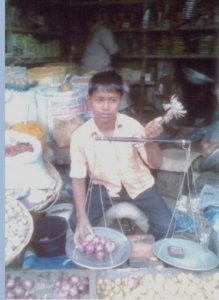
Education is the right of every child. But unfortunately, the 14 years old Akter did not go to school due to extreme poverty. He was the youngest among two brothers and two sisters. His father, Md. Abrahim was a day laborer and his Mother, Asma Begum was a garment worker. They were from Hobiganj and currently were residing in a very small rented house in Board Bazar. Their income was not sufficient to meet their family needs, that is why Akter had to work in a grocery shop from his childhood to help his family. With the help of PIACT he came to know about the BEHTRUWC and registered his name in the learning center of PIACT Bangladesh, Bakul – 99 at Board Bazar, Gazipur. He regularly attended the course and completed it successfully. He studied Bangla, simple English, Mathematics, Life Skills and Social Study in the learning center. He learned different important lessons and techniques from the learning centers. After successful completion of the cycles, he maintained and managed the financial matter and recording system in the grocery shop perfectly. The shop owner was very pleased about his performance increased his salary. He also gave an additional value to him.
Gradually the financial condition of Akter’s family was getting better. He was grateful to the PIACT, UNICEF and BNFE for giving him the opportunity to get education for making his dream into reality.
Non-Formal Education Programs for Illiterate Adults implemented by PIACT Bangladesh during the period of 1995 to 2011
In 1995, PIACT Bangladesh began to implement adult education for illiterate persons in rural areas and continued up to 2001 with support from then Directorate of Non-Formal Education (DNFE). The program was of two types, one was for 10 months duration which provided basic education to the learners to develop skill for reading and writing simple sentences and do simple arithmetic. The other one was for 12 months, the first 9 months were for basic literacy and the last 3 months for linking the learners with different income generation activities. The target groups were both male and female. Their ages varied depending on projects. Most of them were of ages 11-45 years. In some cases, the target groups were of age 15-24 years. A total of 54,900 illiterates (21,000 males and 33,900 females) attended the programs through 1,830 learning centers set up at the community level, separately for males and females spread over 14 districts.
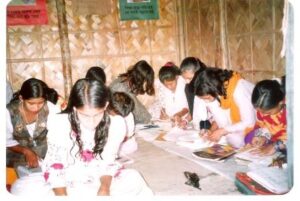

PIACT, with support from then DNFE, undertook Post-Literacy and Continuing Education for Human Development (PLCEHD) for the neo-literates in 2003 and continued up to November 2011. It may be mentioned that the post-literacy program was piloted in different parts of the country through some selected NGOs during April 2000 to March 2001, and PIACT was one of those NGOs. Based on the piloting results, the program was designed and implemented in selected districts through NGOs. The purpose of post-literacy was to refine the literacy skill attained by the neo-literates and the purpose of continuing education was to impart skill training to the beneficiaries. The duration of the course was for 12 months: post-literacy for 3 months; continuing education for 6 months; and practising acquired knowledge, receiving vocational training on different trades and establishing linkage with various agencies for economic activities in the last 3 months. The number of learners graduated from PIACT learning centers were 15,080 (7,540 males and 7,540 females). There were 504 centers spread over 5 upazilas of 5 districts.
Statements on the benefits of PLCEHD given by two women learners are given in the following three pages.
Statement of Zainab Begum: A Self –dependent Woman
Zainab Begum was a woman of Atadi, a remote village in Araihazar upailza under Narayanganj district. She got married to a cloth merchant at the age of 12 but her husband divorced her breaking their thirteen years of conjugal life as she could not produce any child though report found that she did not have any problem for reproduction. As a helpless woman she had nothing to do but accept her uncertain fate.
Fatherless Zainab got the shelter and was passing her days in sufferings in her brothers’ family. There she got admitted to a learning center near her dwelling and developed skill in writing, reading and counting in the first three months. She continued reading books on different issues and got empowered with knowledge on women’s rights, dowry, divorce, diseases etc.
Along with the basic education, Zainab received training on sewing under this program. She had a habit of saving and had savings of Tk. 400. She took a loan of Tk.4,000 from an NGO and bought a sewing machine with this money. She got the order from her neighbors and earned monthly Tk.1,500 by making shalwar, kamiz, children’s frock, mosquito curtain, bed sheet, pillow cover, petty coat, blouse etc. Gradually she was well-known in her area as a good tailor and got the order from the market. She was confident and doing better and in her spare time she was maintaining a poultry and rearing cows. She was also getting an additional income from these. She made a plan to take a shop in the local market for more income.
As she was having a good income her husband proposed her to take back. But Zainab refused. She felt that she made a significant development in her life having the knowledge and training from the post-literacy and continuing education program center. She felt that everybody gave her a special value and she had a role for making decision for her family. Her neighbors also gave her importance and sought for decision. In her opinion, every woman should do some income generation activities to be self-reliant rather than being a burden to the family.
Statement of Mina Akhtar: The past and present days
Mina Akhtar of village Atadi under Araihazar upazila of Narayanganj district is a learner at the Mollabari center of the post-literacy and continuing education program. She is the eldest among the four brothers and four sisters. Her father is a farmer who owns about 4 kani (almost 4 bigha) of land. The harvest from the land barely meets the needs of the family. However, want of money is persistent in their family.
When she attained puberty, she was given in marriage off to a farmer by her parents. Mina gave birth to a girl child after her marriage. From the beginning, there used to be unrest in the family mainly because of want. Her husband divorced her without any reason when she had lived through only two years of her married life. At the time of the divorce, it was decided at the behest of the guardians of the bride and the groom that the father would have the custody of the girl child. Ever since Mina started living an uncertain life at her father’s house.
One day she met Hasina Nargis, the teacher at the Mollabari center and came to know of the activities of the center from her. Lying on bed at night she pondered and decided that she should live a meaningful life. For that she would have to attend the center to receive practical and vocational training. The following day she went to the center and enrolled herself as a learner.
On coming to the center, Mina got the opportunity to sustain her previously earned basic literacy skill. During the first three months, she attained proficiency in writing, reading and counting. Mina informed that at that time, side by side with her education, she could learn a lot of things like cleanliness, primary health care, immunization against various diseases, preparation of oral saline, human rights, marriage and divorce laws, vegetable cultivation around the homestead, afforestation, environment, pisciculture, poultry, rearing of livestock etc. Besides, she could get an idea regarding the various programs and income-generating activities.
Mina has received training on sewing. On completion of her training, she took a loan of Tk.5,000 from Grameen Bank and purchased a sewing machine with the money. With this machine, she herself is now making clothes of various types and earning money by selling them to the neighbors. She is also paying the loan installments from her earning. Besides, Mina is also earning some more money from a poultry which she manages in her house. Mina informs that she now earns between Tk.1,500 to Tk.1,800 per month. She gives a portion of her income to her father to meet the family needs while she saves the rest with a local bank. The disdain that the villagers used to show to her after the divorce is no longer there. Her acceptability to her father and the brothers and sisters has increased considerably compared to the past. She believes that she can lead her own life without remarriage. Although there have been proposals from her family side for her remarriage, yet Mina is not agreeable. She wants to stand on her own feet.
Mina wants to undertake different activities, but for that money is needed. She has decided to go to a commercial bank to obtain a loan although she does not yet know the procedures of obtaining a loan. With the saving that she deposited with the center and by taking loans from relatives, she has purchased a cow. She has in the meanwhile repaid a part of the loan from the sale proceeds of the cow’s milk.
Mina wants to build a small house for herself and purchase a little land for cultivation from her savings. She has deep love for her daughter. She wants to bring the daughter to her, educate her, make her self-reliant and marry her off to an educated boy.
Mina considers herself self-reliant because she earns herself. Now her mental strength has grown considerably. She has established good relation with the women of the village. She now has the opportunity to go out of her house for the sake of her work. She now enjoys independence and can take her own decision if she has to go somewhere. Mina thinks that so much advancement in her life has only been possible because of the post-literacy and continuing education program. She is now happy and self-reliant.
Education of sex workers and their children of Daulatdia brothel in Rajbari district
Sex work is considered as the most hated means of livelihood. The women in sex trade and their children are discriminated, exploited, oppressed and stigmatized in many ways. Among the three major categories of sex workers e.g. brothel SWs, street SWS and hotel based SWs, brothel based SWs suffer more as they leave in a confined area and are easily identifiable. There were 12 brothels in Bangladesh with nearly 4,500 SWs and 1500 SWs lived in Daulatdia brothel alone. They were mostly illiterates and therefore were financially exploited in several ways and did not have any choice for alternative livelihood. The SWs had over 500 children who were living in the brothel. The female children followed their mothers in their profession and the male children got ruined and involved themselves in anti-social activities. There was a general feeling that the situation could be improved through education.
Against the above backdrop, PIACT Bangladesh undertook a program, in May 2000 in Daulatdia brothel sponsored by the Department of Social Services, Ministry of Social Welfare and financed by UNDP.
There were several components of that program aiming for the improved life of SWs and their children, and education of SWs and their children was an important component. UNDP phased out this program in July 2007 and since then PIACT had been running this program on a limited scale with its own resources.
Pre-formal education for the children of SWs
In order to promote normal growth and development of the children, socialize and integrate them with the main stream of the society and to make them productive and self-reliant citizen, the children were provided with pre-formal education so that they can get admitted into the primary school available in the locality.
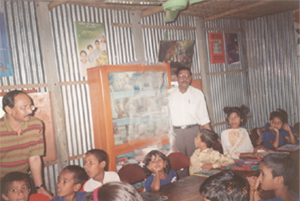
Activities:
- Provided pre-schooling teaching to qualify in the test for admission in primary school
- Contacted with local primary school authorities to admit the children into the school
- Made necessary arrangements for admission of the children into the school
- Provided follow-up services for the admitted children
A total of 175 children were provided with pre-formal education. Among them, over 100 children were admitted in the local primary schools.
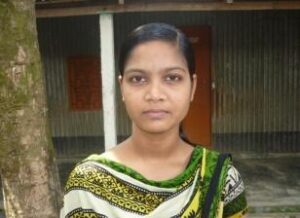
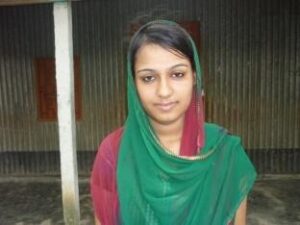
Over the time, five children, 4 females and 1 male, passed the secondary level education staying in PIACT dormitory in Daulatdia. The male child, Md. Kamal Hossain got admitted in Bangladesh-Korea Technical Training Center (BKTTC) in Dhaka with support from PIACT. In collaboration with another NGO (KKS), one girl passed higher secondary education and currently studying in a Polytechnic Institute in Chittagong.
At present 15 children from PIACT dormitory are studying in the local formal schools in different grades and most of them are female children of the sex workers of Daulatdia brothel.
Non-formal education for the SWs
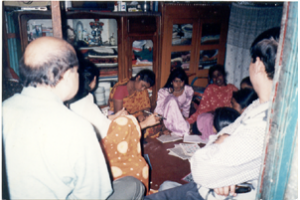
Representative from BRAC observing a session in the brothel
A total of 1,650 SWs from Daulatdia brothel attended a course of non-formal education during the period of 2000 to 2007. This education program was implemented by setting satellite learning centers within the brothel to make it easily accessible to the SWs. The non-formal education aimed at empowering the SWs and their elderly children. This literacy program included reading, writing, signing, basic numerical skill to manage and handle money, operating bank account and accounts of loss and profit.
Research and Evaluation
Research and evaluation is an important component of PIACT Bangladesh since its inception in 1980. PIACT Bangladesh started its journey based on two major pillars: research and communication on population control , contraceptive safety issues and health . Both quantitative and qualitative methods were employed in undertaking the research and evaluation studies. The quantitative studies were surveys and evaluation studies on health nutrition , population , social aspects and communication . It also conduced operations research and experimental studies on micronutrients, mother and child nutrition and FP-MCH logistics management. The qualitative studies were mainly on understanding and perception of the community/target groups of specific programs, identification of the barriers and practices of the target groups and understanding/explaining the program impact and constraints . The methods used were FG, PRA , observation and in-depth interview including exit interviews and in-disguise interviews.
So far PIACT Bangladesh conducted as many as 106 research and evaluation studies as presented below:
